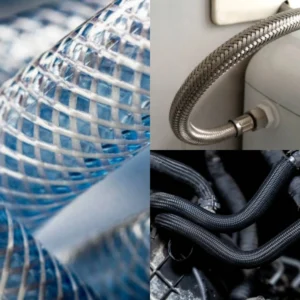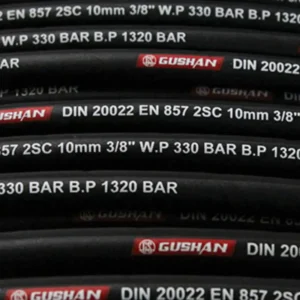As suppliers of high-quality hoses, we get this question a lot. Expandable hoses are a fantastic innovation—they’re lightweight, compact, and easy to store. It’s natural to wonder if you can combine their convenience with the power of a pressure washer. However, we’re here to give you a definitive answer and explain the critical reasons behind it. In this guide, we’ll dive into the fundamental differences between these hoses and your pressure washer’s requirements, ensuring your equipment stays safe and your cleaning is effective.
What are Expandable Hoses
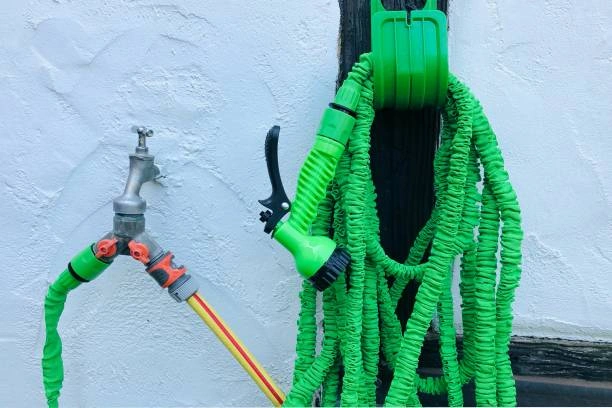
Expandable hoses are a clever and convenient tool for low-pressure applications like watering your garden or washing your car. Their design is what makes them so unique and useful. They consist of a flexible inner tube—usually made from latex or a similar polymer—surrounded by a durable, woven outer fabric.
When you turn on the water, the inner tube expands with the pressure, causing the hose to lengthen. When you turn the water off, the tube shrinks, and the hose returns to its original compact size. This design is what makes them so easy to handle and store.
The key to their function lies in their dependence on standard, low water pressure. The inner tube is engineered to expand safely under the typical pressure found in a home spigot, which is usually around 40 to 60 PSI (pounds per square inch). While this is perfect for gentle tasks, it’s a critical limitation. This low-pressure design is the primary reason why they are fundamentally incompatible with the high-pressure environment of a pressure washer.
What are Pressure Washers
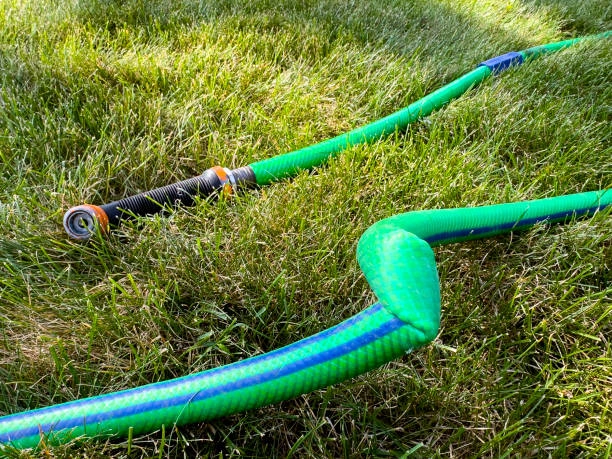
A pressure washer is an entirely different beast from a garden spigot. Its job is to take a low-pressure water supply and intensify it dramatically. The machine’s pump forces water through a narrow nozzle, creating a powerful jet for heavy-duty cleaning. A pressure washer operates at pressures that are hundreds, and often thousands, of times higher than a regular garden hose. This requires a specialized, reinforced hose that can handle that kind of force without failing.
The hose that connects from your pressure washer to the spray gun is not a regular hose; it’s a high-pressure hose. These hoses are engineered with multiple layers of braided steel or tough synthetic textiles for reinforcement. They are designed to withstand pressures ranging from 1,500 to over 4,000 PSI. This robust construction is what allows the hose to contain the immense force of the water jet. Without a properly rated hose, the entire system becomes a ticking time bomb.
Do Expandable Hoses Work With Pressure Washers?
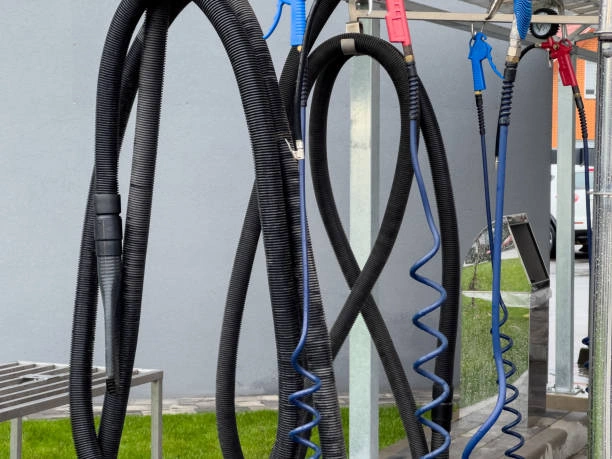
The short, and very important, answer is no. Expandable hoses do not work with pressure washers. We strongly advise against attempting to use them for this purpose. The core design principles of the two products are in direct opposition, creating a dangerous and ineffective situation.
- Immediate Failure: An expandable hose is designed to handle a maximum of around 60 PSI. A pressure washer, even a small residential model, operates at a minimum of 1,500 PSI. This extreme difference in pressure means the expandable hose will likely burst instantly when the pressure washer is turned on.
- Serious Safety Risks: A hose bursting under thousands of pounds of pressure is incredibly dangerous. The hose can whip around violently, causing severe injury to anyone nearby. The high-velocity water jet can also cause cuts or even inject water under the skin, leading to serious medical issues.
- Equipment Damage: When a hose bursts, the sudden loss of pressure can cause a shockwave through the system, potentially damaging the pressure washer’s pump. This can lead to costly repairs or even require you to replace the entire machine.
The bottom line is that the risk of injury and equipment damage is simply not worth the potential convenience. Using a specialized, properly rated high-pressure hose is the only safe and effective way to operate your pressure washer.
How to choose the Right Hose
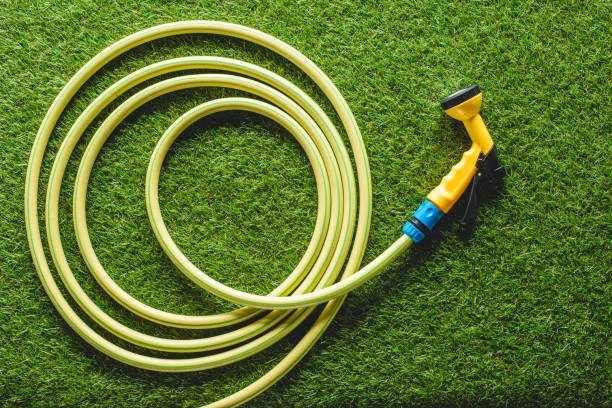
A high-pressure washer actually requires two different hoses to function properly, and understanding their respective functions is crucial. The first is the low-pressure inlet hose, and the second is the high-pressure outlet hose. Choosing the right hose for your specific function is key to safe and efficient high-pressure cleaning.
| Hose Type | Function | PSI Rating | Recommended Material |
| Inlet Hose | Supplies water from a spigot to the pressure washer’s pump. | Standard low pressure (~60 PSI) | A high-quality, standard garden hose. |
| Outlet Hose | Carries highly pressurized water from the pump to the spray gun. | High Pressure (1,500 – 4,000+ PSI) | Reinforced rubber, PVC, or polyurethane with appropriate fittings. |
Choosing a Quality Pressure Washer Hose
When it comes to buying a pressure washer hose, there are a few key factors you need to consider to ensure you’re making a safe and smart choice. As your hose experts, we want to help you make an informed decision that will save you time and headaches down the road.
- Match the PSI Rating: The most important rule is that the hose’s PSI rating must meet or exceed your pressure washer’s maximum output. A 3,000 PSI pressure washer requires a hose rated for at least 3,000 PSI.
- Consider the Material:
- Choose the Right Length: While a longer hose offers more reach, it can also lead to a small drop in pressure. Choose a length that balances convenience with maintaining optimal pressure.
- Verify the Fittings: Ensure the hose has the correct fittings for your machine and spray gun. The most common types are threaded M22 fittings and quick-connect fittings. Compatibility is essential for a secure, leak-free connection.
Conclusion
While we love the convenience of telescopic hoses for gardening, they are simply not designed to withstand the extreme pressures of a pressure washer. Telescopic hoses should not be used with pressure washers. If you have any questions about choosing the best hose for your specific pressure washer, please feel free to contact us.


